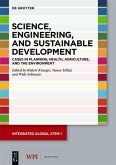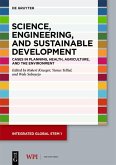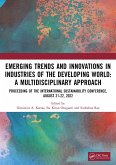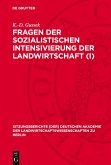Dr. Amanullah is currently working as Professor in the Department of Agronomy, Faculty of Crop Production Sciences, The University of Agriculture Peshawar, Pakistan. Dr. Amanullah has published/edited more than 26 books/reports, and more than 350 research papers/chapters in peer reviewed journals including more than 130 papers in the impact factor journals. Dr. Amanullah is the co-author in few books published by UN-FAO e.g. (1): Soil and Pulses: Symbiosis for Life (2016) (2): Unlocking the Potential of Soil Organic Carbon (2017), (3): Soil Pollution: a hidden reality (2018), (4): Measuring and modelling soil carbon stocks and stock changes in livestock production systems - Guidelines for assessment (2019), and (5): Water use of livestock production systems and supply chains - Guidelines for assessment (2020), etc. Dr. Amanullah is the co-author of a chapter on the assessment report of The Intergovernmental Science-Policy Platform on Biodiversity and Ecosystem Services (IPBES) on land degradation and restoration (2018). Dr. Amanullah worked as review editor of The United Nations' Intergovernmental Panel on Climate Change's (IPCC) Special Report on Climate Change and Land (SRCCL), also known as the 'Special Report on climate change, desertification, land degradation, sustainable land management, food security, and greenhouse gas fluxes in terrestrial ecosystems (2019). Dr. Amanullah also edited few books with Intech Open e.g.: (1): Rice - Technology and Production (2017), (2): Nitrogen in Agriculture-Updates (2018), (3): Corn: Production and Human Health in Changing Climate (2018), (4): Agronomy - Climate Change & Food Security (2020), etc., and a recent book with MDPI-Agriculture on Fertilizer Use, Soil Health and Agricultural Sustainability (2022). Dr. Amanullah has been awarded with three Research Productivity Awards by the Pakistan Council for Science and Technology (PCST), Islamabad in 2011-12, 2012-13, and 2015-16. Dr. Amanullah represented Pakistan in the FAO Intergovernmental Technical Panel on Soil (ITPS) in the Global Soil Partnership (2015-2018). Some of Dr. Amanullah field of interests includes: Agronomy, Field Crops Production, Crop Physiology & Growth Analysis, Inter-Cropping & Plants Competition, Biodiversity, Climate Change, Food Security, GHGs Estimation in Field Crops, Crop Nutrition, Fertilizer and Water Use Efficiency, Dryland Agriculture & Drought, Organic Farming, Crops Management under Stressful Environments, Sustainable Crop Production, Sustainable Soil and Water Management, and Farmers training etc.
Dieser Download kann aus rechtlichen Gründen nur mit Rechnungsadresse in A, B, BG, CY, CZ, D, DK, EW, E, FIN, F, GR, HR, H, IRL, I, LT, L, LR, M, NL, PL, P, R, S, SLO, SK ausgeliefert werden.









